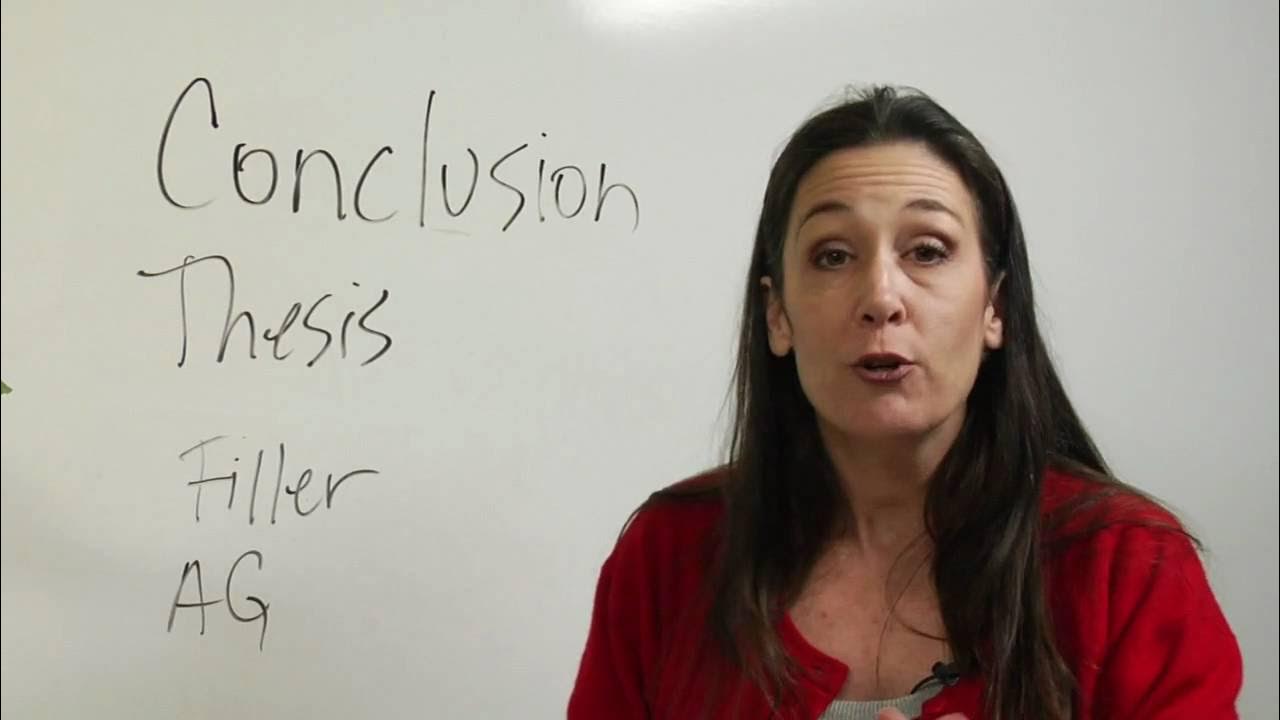How to Write a Conclusion for a Dissertation | Scribbr 🎓
Summary
TLDRJessica from Scribbr guides viewers on crafting an impactful thesis or dissertation conclusion. She advises keeping it concise, around 5-7% of the total word count, and refraining from introducing new data. The conclusion should answer the research question, summarize findings, reflect on the methodology, make recommendations, and highlight the research's contributions. She also suggests writing the abstract next and proofreading the thesis for clarity and language errors.
Takeaways
- 📝 The conclusion should be concise, engaging, and the very last part of your thesis or dissertation.
- 🔍 The conclusion is more general and does not discuss specific results but summarizes the most important insights.
- 🚫 Avoid introducing new data or interpretations in the conclusion.
- 📏 The conclusion's length should be about 5-7% of the overall word count, varying by thesis type.
- 🧐 Empirical research conclusions are often short, stating main findings and recommendations.
- 🎯 A humanities thesis might need more space in the conclusion to tie chapters together.
- 🔑 Four key elements of a good conclusion: answering the research question, summarizing and reflecting, making recommendations, and emphasizing contributions.
- 🤔 Reflect on the methodology's effectiveness and any new questions or insights that arose.
- 💡 Make recommendations as suggestions for practical implementation or future research.
- 🌟 Highlight your research's contributions to the field by addressing the problem statement and literature review.
- 🏁 After writing the conclusion, write the abstract, ensure references are complete, and proofread the thesis.
Q & A
What is the primary purpose of a conclusion in a thesis or dissertation?
-The conclusion serves as a concise and engaging summary of the most important insights of the research without introducing new data or interpretations.
How does the conclusion differ from the discussion section in a thesis?
-The conclusion is shorter and more general, focusing on broad statements rather than discussing specific results.
What is the recommended length of a conclusion relative to the overall thesis?
-The conclusion should typically be around 5-7% of the overall word count of the thesis.
How does the length of a conclusion vary between empirical research and humanities theses?
-Empirical research often has a shorter conclusion, while a humanities thesis might require more space to conclude its analysis and tie chapters together.
What are the four elements that make a good conclusion according to the script?
-The four elements include answering the research question, summarizing and reflecting on the research, making recommendations, and emphasizing the contributions of the research.
Why is it important to answer the research question in the conclusion?
-Answering the research question in the conclusion is crucial as it shows that the research objectives have been met and provides a clear, concise final takeaway.
How should the researcher reflect on their methodology in the conclusion?
-The researcher should consider the effectiveness of their methodology in answering the research questions and whether any new questions or unexpected insights arose during the process.
What is the appropriate way to make recommendations in a conclusion?
-Recommendations should be framed as suggestions rather than imperatives, especially for policy or practical implementation.
How can the conclusion emphasize the contributions of the research to the field?
-The conclusion can emphasize contributions by returning to the problem statement, referring back to the literature review, discussing how findings confirm or challenge existing theories, and summarizing key points.
What are the next steps to take after writing the conclusion of a thesis?
-After writing the conclusion, the next steps include writing the abstract, ensuring the reference list is complete and correctly formatted, and proofreading the entire document.
What resources does Scribbr offer to assist with the final stages of thesis writing?
-Scribbr offers free citation generators and a proofreading and editing service to assist with the final stages of thesis writing.
Outlines

Cette section est réservée aux utilisateurs payants. Améliorez votre compte pour accéder à cette section.
Améliorer maintenantMindmap

Cette section est réservée aux utilisateurs payants. Améliorez votre compte pour accéder à cette section.
Améliorer maintenantKeywords

Cette section est réservée aux utilisateurs payants. Améliorez votre compte pour accéder à cette section.
Améliorer maintenantHighlights

Cette section est réservée aux utilisateurs payants. Améliorez votre compte pour accéder à cette section.
Améliorer maintenantTranscripts

Cette section est réservée aux utilisateurs payants. Améliorez votre compte pour accéder à cette section.
Améliorer maintenantVoir Plus de Vidéos Connexes

How to Write a STRONG Thesis Statement | Scribbr 🎓

How to Write a Strong Essay Conclusion | Scribbr 🎓

Dissertation Conclusion Chapter: 6 Simple Steps + Examples (Dissertation & Thesis Conclusion)

4 TIPS for Writing a Literature Review's Intro, Body & Conclusion | Scribbr 🎓

How to Write a Speech : Speech Conclusion

How to Write a Literature Review: 3 Minute Step-by-step Guide | Scribbr 🎓
5.0 / 5 (0 votes)
